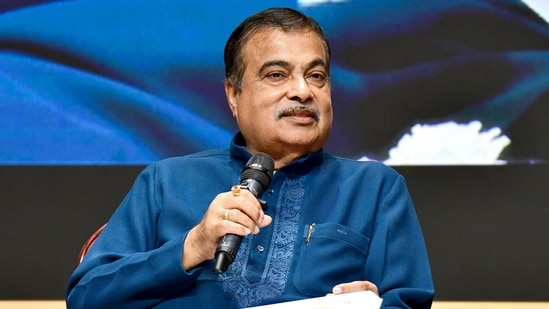While speaking at an event in Pune, Nitin Gadkari said that the sugar industry in the country had survived due to the advent of ethanol. Union minister Nitin Gadkari on Sunday dismissed critics’ claims amid the ethanol controversy, saying his brain is worth ₹200 crores and that he knows how to earn honestly.
Taking a swipe at his detractors, Gadkari, while addressing an even in Nagpur, said “I am not at all short of money and I don’t stoop low”. “My brain is worth 200 crore per month. I know how to earn honestly,” Gadkari said, according to India Today. The union minister for road transport and highways further said that he had no shortage of money. The remarks come after the Congress, earlier this month, alleged conflict of interest and levelled allegations over the government’s push for ethanol blended petrol. However, the BJP had brushed aside the allegations, saying that the Congress had become like the Aam Aadmi Party, adding that it claimed it had evidence of wrongdoings in its pocket, but had nothing in reality.
Meanwhile, Gadkari renewed his pitch for ethanol production on Sunday. While speaking at an event of Naam Foundation in Pune, the union minister said that the sugar industry in the country had survived due to the advent of ethanol. “We import fossil fuel worth ₹lakh 22 crore due to ethanol. Today, the sugarcane cultivators and sugar mill operators have survived just because of the advent of ethanol,”Gadkari. The union minister said that sugar was in surplus in the country, with the sugar mills managing to survive due to the advent of ethanol. The E20 fuel has become a topic of debate recently, especially its impact on vehicles, including the decline in fuel economy and engine parts. Several people claimed a drop in mileage up to 20 per cent.
However, Gadkari on Thursday replied that the debate on social media over the blending of 20 per cent ethanol in petrol fuel (E20) was just a “paid campaign” to politically target him. He further stated that there had been clarity on E20 with all the stakeholders, including the automobile industry. The Opposition’s criticism came after the Supreme Court rejected a PIL, which challenged the nationwide rollout of 20 per cent ethanol-blended petrol (EBP-20) and alleged that millions of motorists were being forced to use the fuel, which was not compatible with their vehicles.



